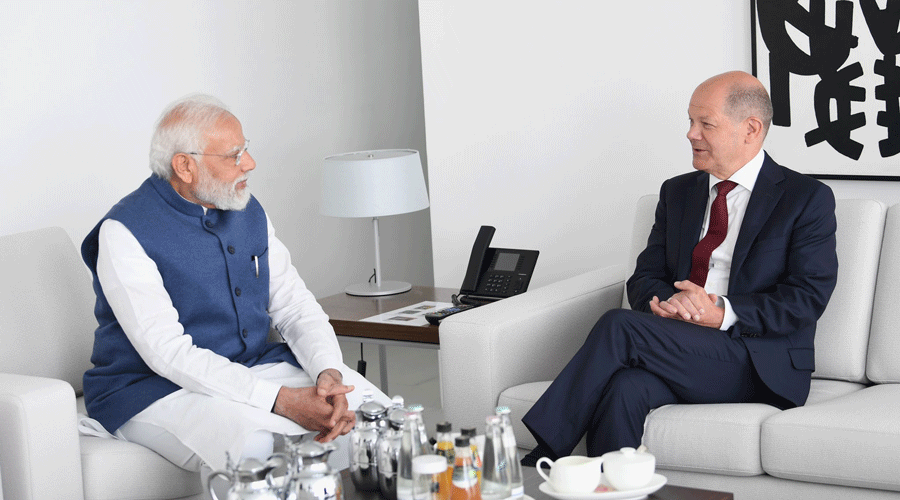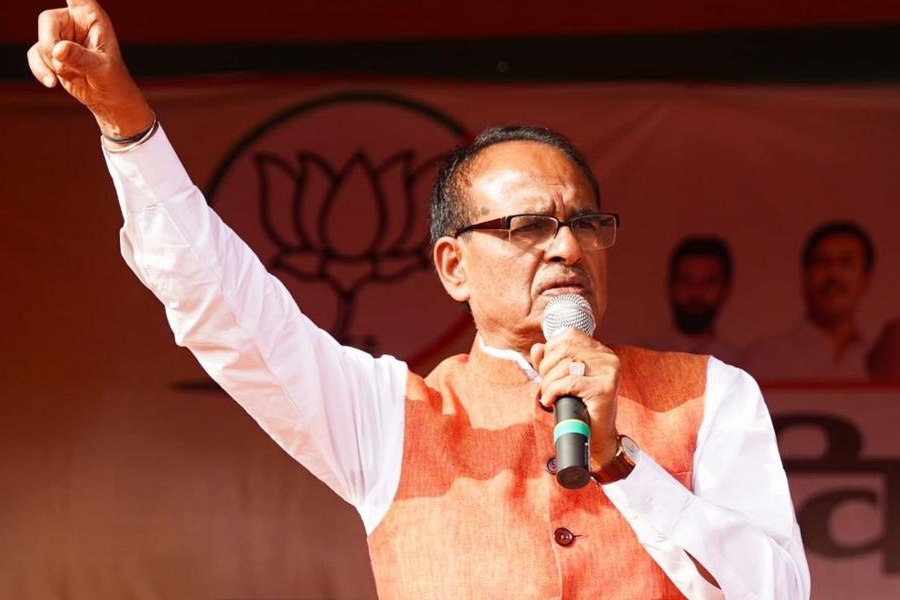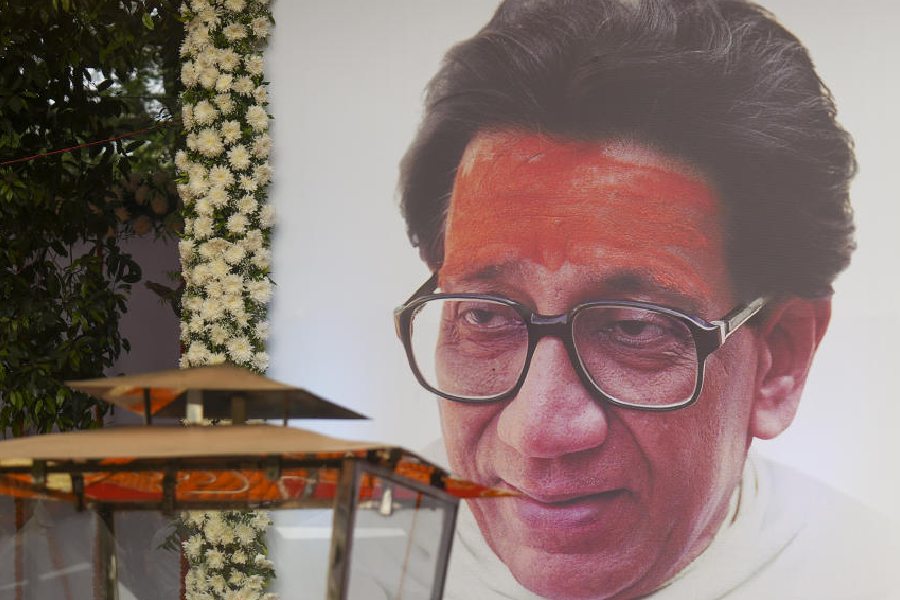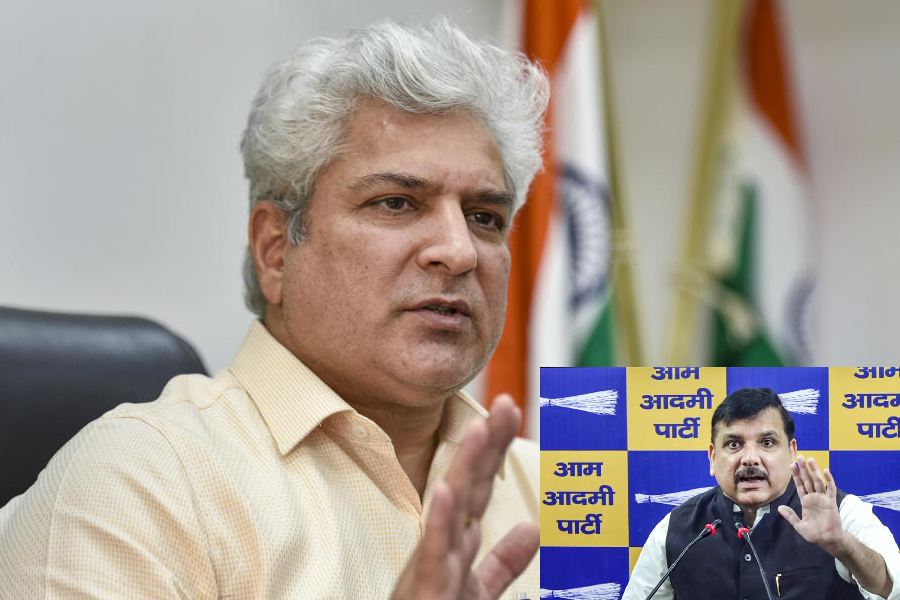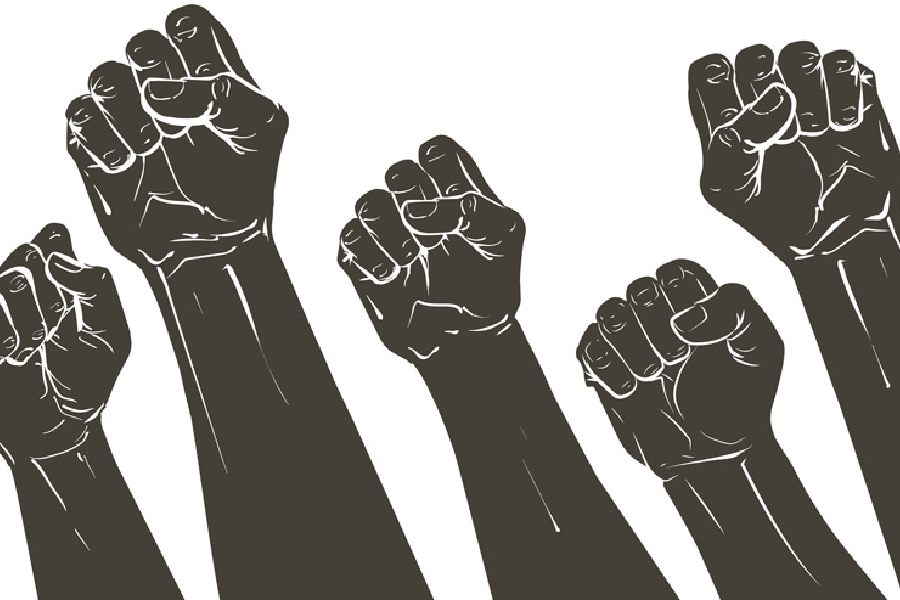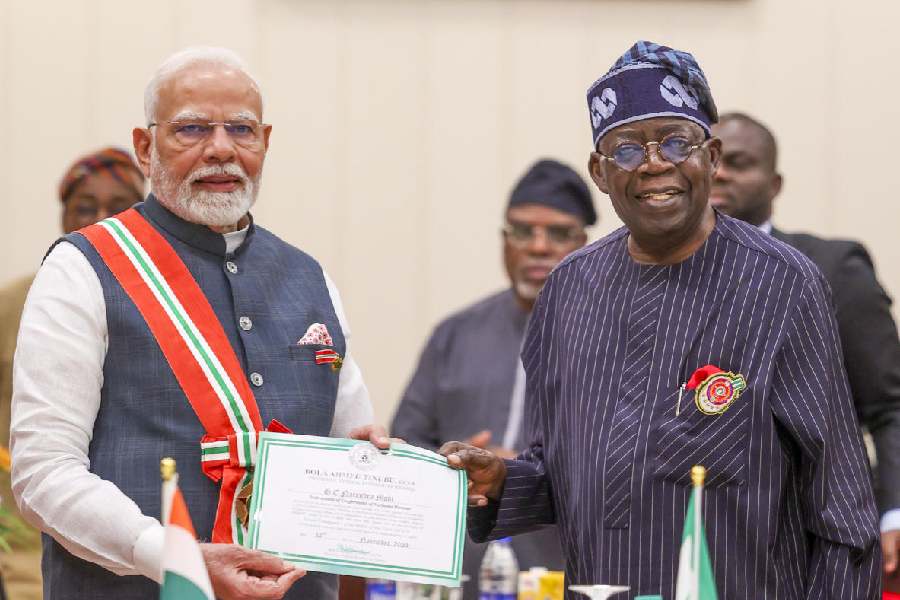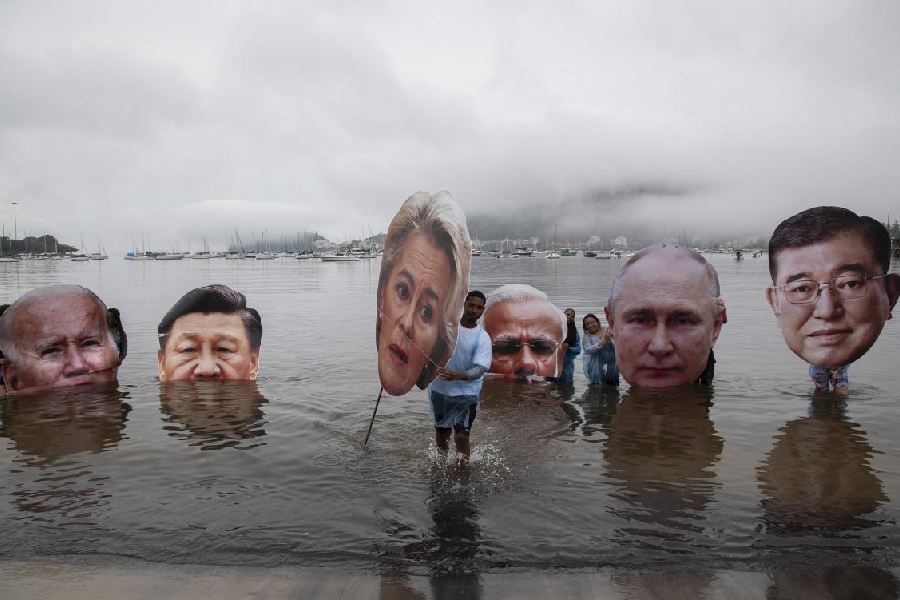Amid growing concern in India about galloping food inflation and oil prices, Prime Minister Narendra Modi on Monday highlighted how the Ukraine crisis was affecting every human being across the world with energy prices rising along with food and fertiliser shortages.
Modi made this reference in his press statement in Berlin after meeting German Chancellor Olaf Scholz in an apparent bid to stave off the heat his government is getting back home for rising prices.
Predictably Ukraine dominated discussions and Scholz stated as much in his press statement through which he appealed to Russian President Vladimir Putin to end the war and senseless killings besides withdraw troops from Ukraine.
Stating that Russia has violated fundamental principles of international law, Scholz said the two leaders agreed that borders should not be changed with the use of violence and acknowledged that the Ukraine crisis has impressed upon the world the importance of a rules based order.
For his part, Prime Minister Modi pointed out that India has been calling for a ceasefire from the day the war broke out; asserting the Indian assessment that no one will emerge victorious from this conflict. “Recent geo-political events have shown how fragile world peace and stability are. And, how interconnected all countries are…. The rise in oil prices, the shortages in fertilisers… are affecting everyone, especially the poorer and developing countries.’’
Scholz also confirmed what has been in the realm of speculation for a while now — openly inviting India for the G7 meeting scheduled to be held in Germany in the end of June.
Prior to their press statements, the two leaders presided over the sixth India-Germany Inter-Governmental Consultations. The joint statement issued at the end of the consultations also referred to the situation in Ukraine with Germany managing to get in a direct condemnation of Russia in a joint statement with India.
“Germany reiterated its strong condemnation of the unlawful and unprovoked aggression against Ukraine by Russian Forces.’’ This stand-alone sentence in the statement with India remaining silent was a continuation of India’s refusal to condemn Russia.
Since the conflict began on February 24, New Delhi has managed to fight back any reference to Russia in joint statements signed with various countries including the UK during Prime Minister Boris Johnson’s visit to India, the 2+2 dialogue with the US in Washington, the India-Australia Virtual Summit, and the India-Japan Summit.
This apart, on Ukraine, the joint statement said: “Germany and India expressed their serious concern about the ongoing humanitarian crisis in Ukraine. They unequivocally condemned civilian deaths in Ukraine. They reiterated the need for an immediate cessation of hostilities. They emphasised that the contemporary global order has been built on the UN Charter, international law and respect for sovereignty and the territorial integrity of states. They discussed the destabilising effect of the conflict in Ukraine and its broader regional and global implications. Both sides agreed to remain closely engaged on the issue.’’

